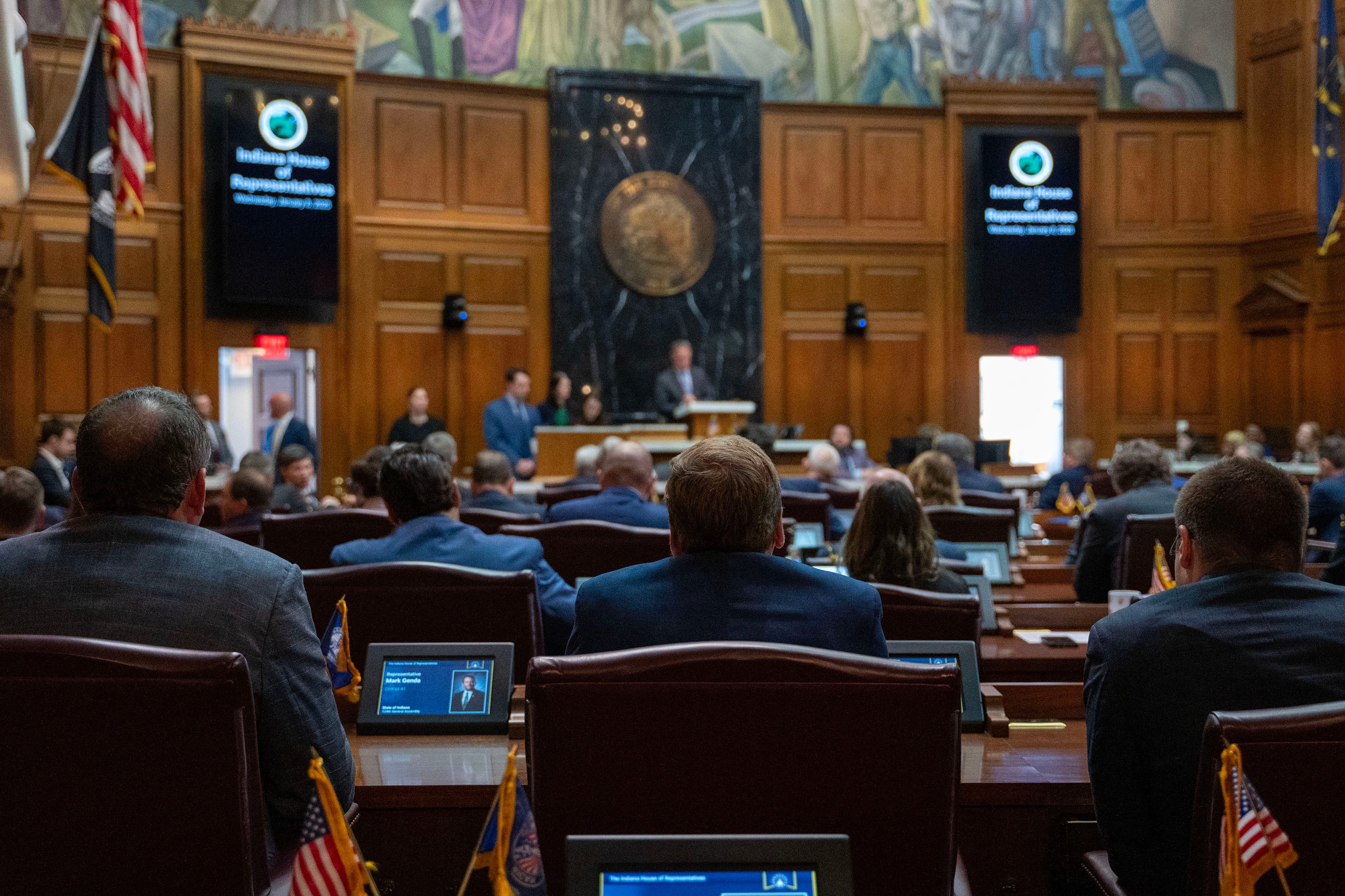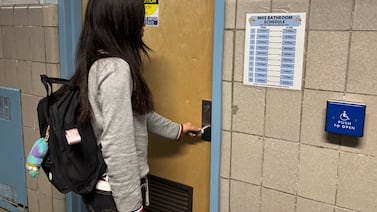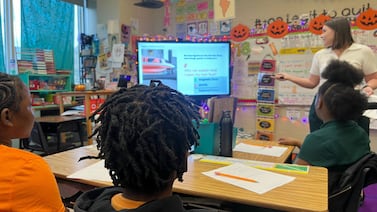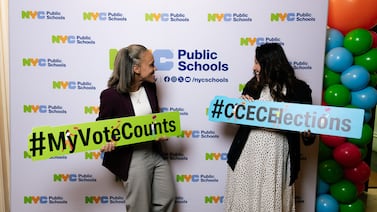Sign up for Chalkbeat Indiana’s free daily newsletter to keep up with Indianapolis Public Schools, Marion County’s township districts, and statewide education news.
All Indiana families will be eligible for school vouchers starting June 2026, an expansion expected to cost the state around $93 million, according to the state budget that lawmakers passed early Friday. It’s now on its way to Gov. Mike Braun’s desk.
The latest budget maintains 2% increases in K-12 tuition support for public schools each of the two years of the budget, with additional funds allocated in 2026 for the Choice Scholarship voucher expansion.The increases also include the $160 million curriculum materials fund that schools currently receive as separate dollars.
In total, the state will spend approximately $9.4 billion in fiscal year 2026 and $9.6 billion in fiscal year 2027 on K-12 funding, up from around $9 billion in 2025 — which includes basic funding that all students receive, as well as categorical dollars for educating students in poverty, in special education, or English learner programs.
Delaying the voucher expansion to the second year of the budget is a compromise between Gov. Mike Braun and House budget writers, who wanted to see vouchers open to all beginning in fiscal year 2026, and Senate lawmakers who ruled out a voucher expansion over concerns that this year’s tight budget would impact the funding available. The state’s voucher program cost around $439 million in 2023-24, the latest figure available from the state.
The latest state revenue forecast showed $2 billion less than expected for the next biennial budget.
“We’ll be able to do that in the second year and give those parents the choice that I think they deserve,” said Rep. Jeffrey Thompson, chair of the House Ways and Means committee, at a media briefing on Wednesday.
The budget passed over the objections of Democrats in the General Assembly, who characterized the voucher expansion as a subsidy to wealthy families.
“This is a choice to prioritize the wealthy while leaving working families and our public schools behind,” said Rep. Carey Hamilton.
They also expressed concerns over a provision in the budget bill giving Gov. Mike Braun the power to appoint the entire Indiana University Board of Trustees. Currently, three members of the nine-member board are alumni and elected by alumni.
“It concentrates power instead of dispersing it. It silences stakeholders instead of engaging them,” said Democratic Rep. Mitch Gore.
Schools will also be grappling with the effects of Senate Enrolled Act 1, which reduces property taxes and requires districts to share some local revenue with charter schools. The proposal is expected to cost school districts around $744 million over the next three years.
Here are some other notable changes in education funding in the final budget:
- Lawmakers have opted to keep funding for virtual students at 85% of the amount that brick-and-mortar students receive in current law. This is a compromise between the House — which proposed giving these students equal funding — and the Senate, which wanted to reduce the funding to 70% over ongoing concerns about virtual schools’ performance and transparency.
- A new Freedom and Opportunity in Education line item has been reduced to $50 million per year from $86 million per year that House and Senate lawmakers allocated to the fund. These dollars are intended to pay for Indiana Department of Education initiatives, like the statewide teaching jobs website and the expansion of the ILEARN checkpoint pilot.
- The allocation for teacher appreciation grants has been reduced from $37.5 million per year to $35.6 million per year.
- The distribution for summer school has been reduced from $18.3 million per year to $17.4 million per year.
- The administration of the Career Scholarship and Education Scholarship accounts shifts from the state Treasurer’s Office to the Education Department. Each program would receive $10 million per year.
- Gifted and talented education stands at $15 million per year after initially facing cuts.
- Lawmakers did not restore funding for the dual immersion pilot program, Dolly Parton Imagination Library, or the internet connectivity fund — cuts made early in the budget process.
- The final budget restores the $52.6 million in the Charter and Innovation Network School Grant program, which offers those schools $1,400 per student. But it removes funding for the Charter School Capital Grant, a $25 million line item allotted in 2023-24 for facility needs.
On Thursday morning, lawmakers sent SB 287 allowing school board candidates to choose a partisan political affiliation to the governor’s desk.
They also voted through SB 289. After several changes throughout the session, this bill now prohibits state universities, public schools, and their employees from teaching or training that “a person having a specific personal characteristic is inherently superior or inferior to a person having a different personal characteristic,” that those characteristics determine a person’s character, or that a person should be blamed for actions committed in the past.
The bill prohibits public employers and employees from implementing any of these ideas or compelling students to do so.
The bill also changes the criteria for state-funded teaching scholarships that previously were awarded to Black or Hispanic candidates to instead go to candidates who live and work in underserved counties, defined as Allen, Marion, Lake, St. Joseph, and Vanderburgh counties.
Reporter Amelia Pak-Harvey contributed to this story.
Aleksandra Appleton covers Indiana education policy and writes about K-12 schools across the state. Contact her at aappleton@chalkbeat.org.






